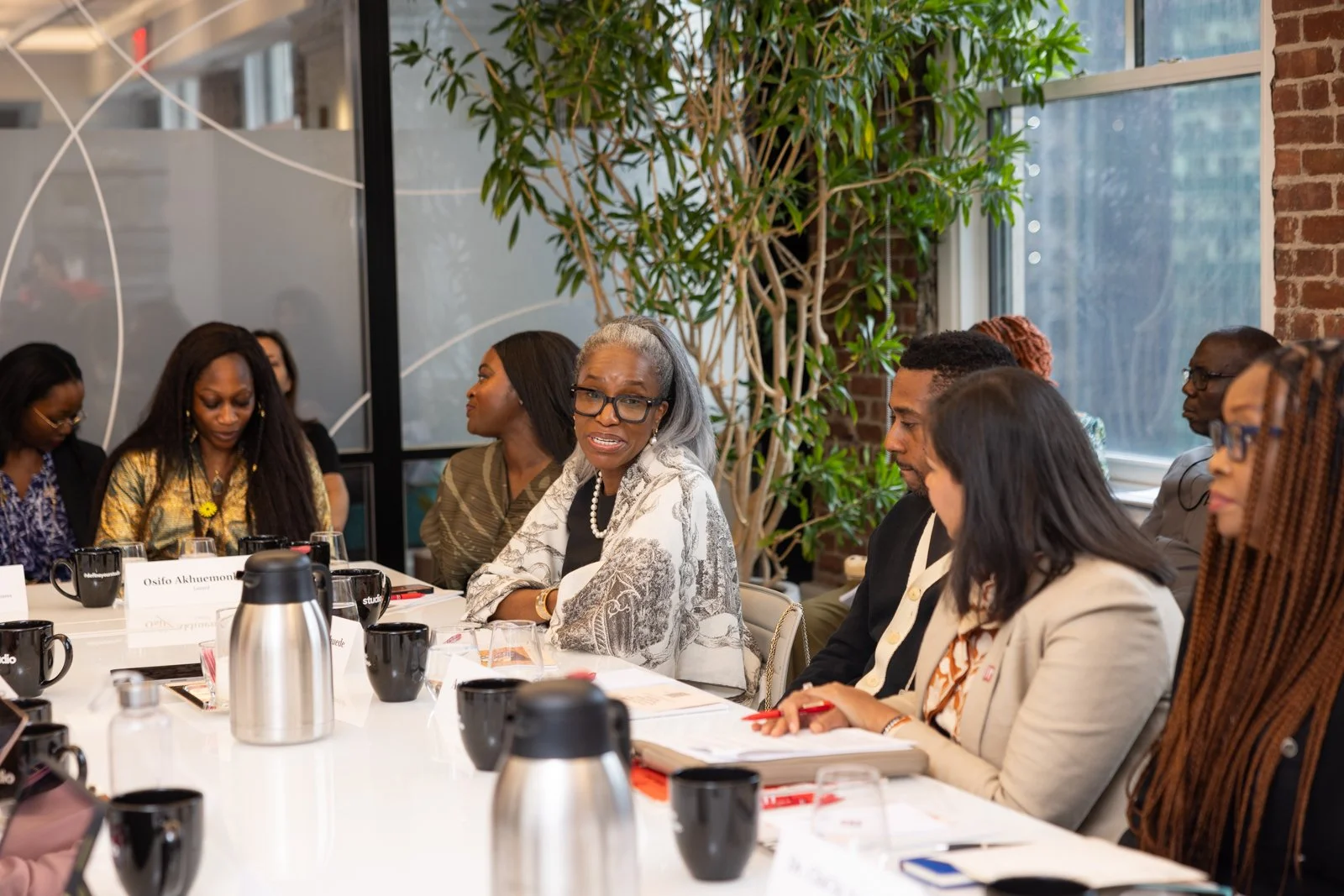UNGA80 Roundtable Session: Scaling Community-Led Development with Diaspora Support
Our Executive Vice-Chair, Ofovwe Aig-Imoukhuede, joined a high-level roundtable hosted by Foreign Policy and the Ford Foundation on the sidelines of #UNGA80, exploring how the Nigerian diaspora can drive Africa’s transformation through coordinated, community-led philanthropy.
Africa’s transformation is increasingly being shaped by the power and potential of its diaspora. Beyond remittances, millions of Africans abroad are championing a new era of community-driven, strategic philanthropy aimed at tackling systemic challenges and driving sustainable development across the continent. The Nigerian diaspora stands out as a key force in this movement, leveraging education, economic success, and innovation to build bridges that connect resources with lasting impact at home. This growing momentum calls for greater coordination, trust-building with local communities, and collective action to maximise opportunities for effective change.
At a high-level roundtable held on the sidelines of #UNGA80 and hosted by Foreign Policy in partnership with the Ford Foundation, our Executive Vice-Chair participated in a panel to explore the crucial role of the Nigerian diaspora in advancing Africa’s transformation through more coordinated and community-led philanthropic efforts.
The roundtable brought together diaspora leaders to explore strategies for moving beyond fragmented, hyper-local giving to address systemic challenges and promote sustainable development. The session, themed “From the Ground Up: Scaling Community-Led Development with Diaspora Support,” focused on building trust with local civil society, investing in lasting community-led solutions, and leveraging the diaspora’s global influence to strengthen development outcomes across Africa.
Participants emphasised the importance of collective action, noting that for the diaspora to unlock its full potential, philanthropic efforts must transcend individual passion projects. Instead, investments should be directed towards community-led systems and collaborative approaches, creating sustainable change that transforms institutions and delivers enduring benefits for citizens.

